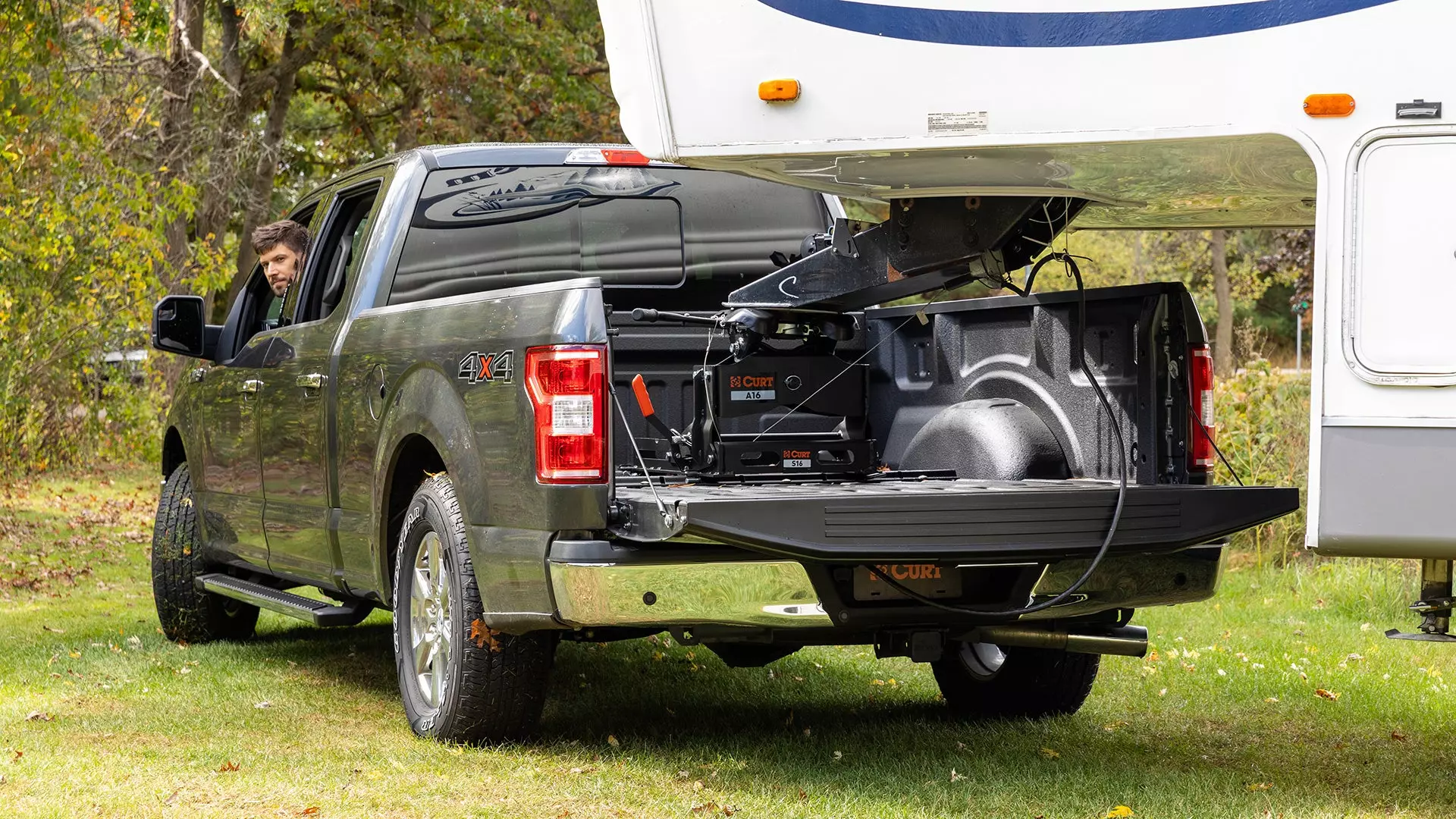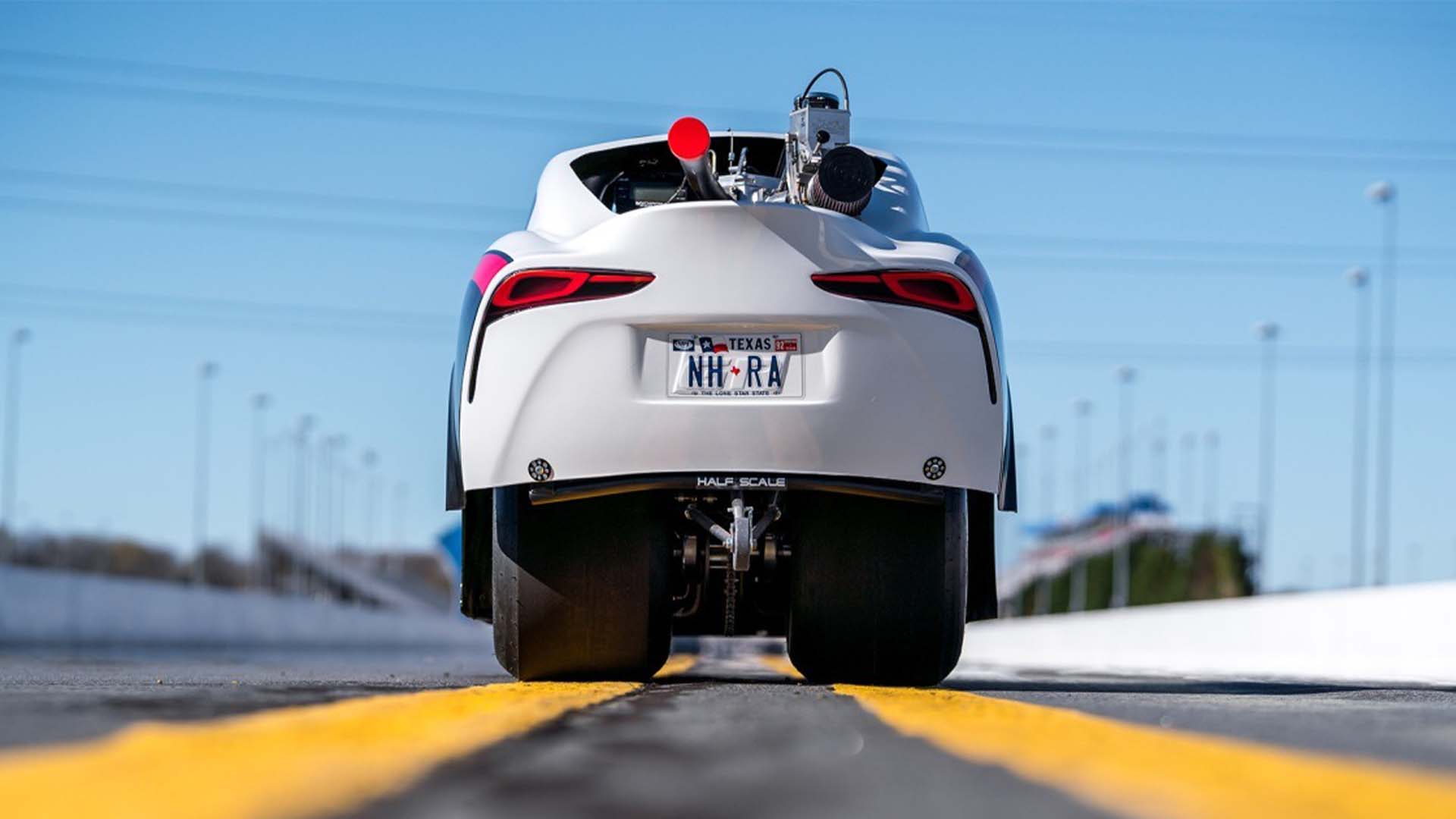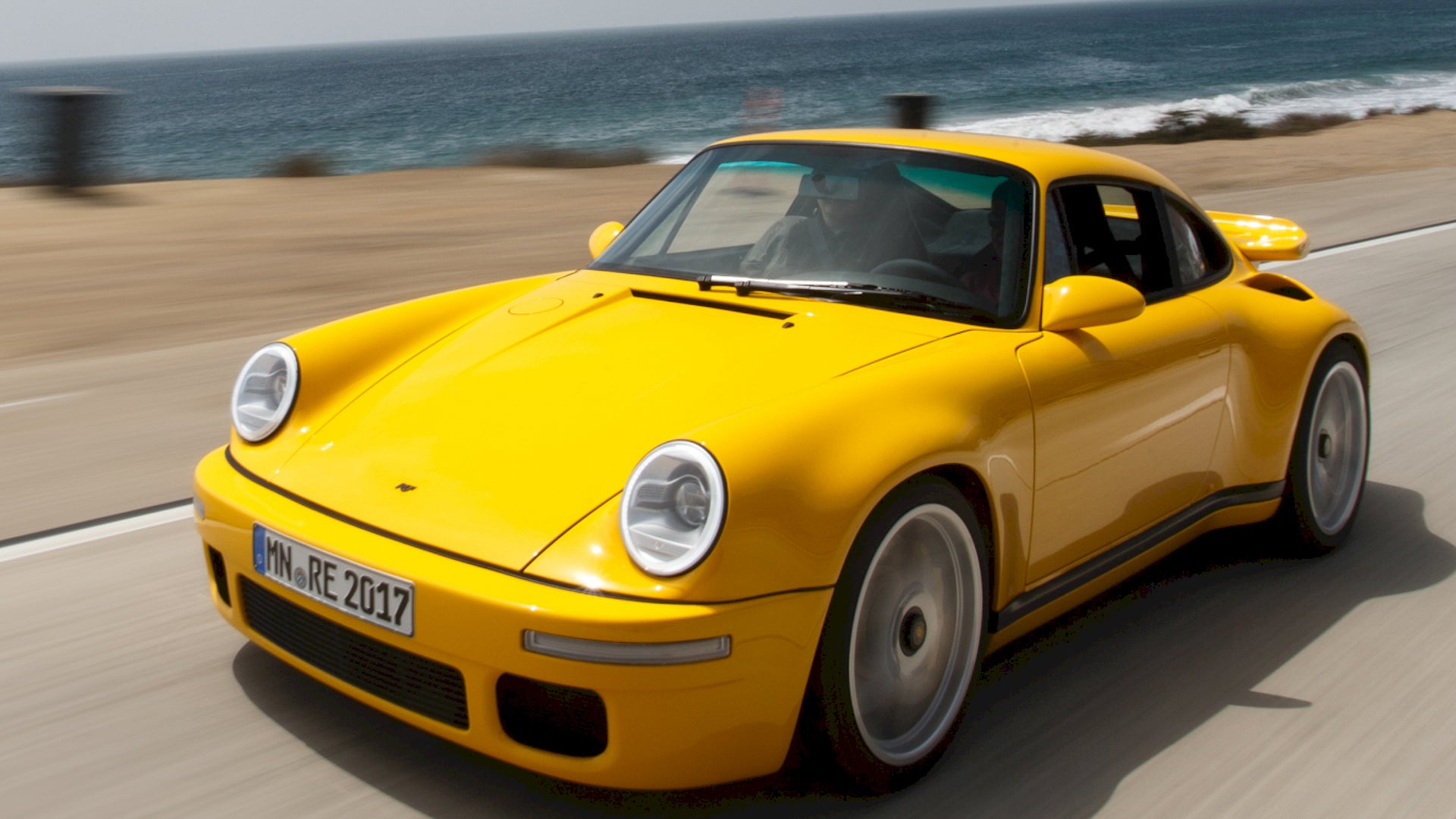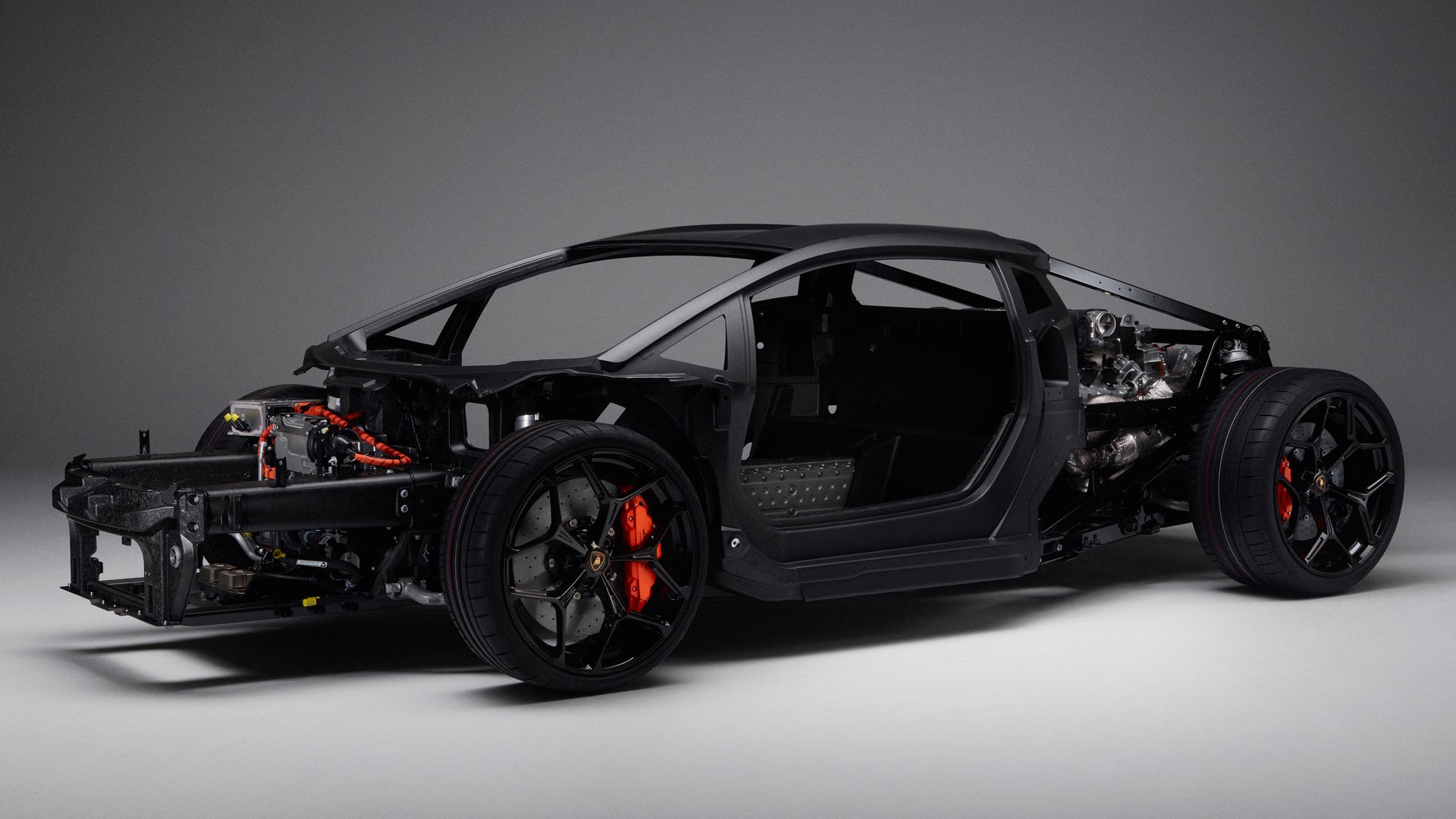RVs drive themselves, cars and crossovers can tow pop-up campers, and large SUVs are fully capable of towing travel trailers, but there’s only one type of camping that requires a truck: fifth wheeling. This method isn’t reserved only for people who think truck nuts make great stocking stuffers, though, it’s for people who want the stability and luxury of an RV while maintaining the freedom of a personal vehicle.
If you can afford the space and price, fifth wheels can open the world to a free-roaming life full of adventure and nature, or dozens of infields at your favorite race tracks. The destination is up to you, but it’s up to the editors at Car Autance to get you prepared. Below, we give you the important stuff you need to know about fifth wheels. Let’s begin with the basics.
What Is a Fifth Wheel?
In this article, we are referring to the fifth wheel camper trailers, sometimes called fivers. A fifth wheel trailer is a type of towable camper trailer that connects to a hitch that is bolted to the center of a pickup truck bed, with part of the trailer hanging over the bed.
Fifth wheel trailers are unique due to their connection method, which uses a kingpin on the trailer to latch into a raised U-shaped coupling in the truck bed. This is a similar design to what semi-trucks use to pull their trailers.
Where Does the Name Fifth Wheel Come From?
The name fifth wheel is derived very literally from old-school design. Back in the 1800s, some carriages mounted onboard horizontal wheels to allow for the front axle to easily turn left or right. Four wheels on the trailer, plus the extra wheel equals five wheels. This same general principle was applied to modern design and the name has carried through, as a new-age fifth wheel pivots in a similar nature.
The Advantages of a Fifth Wheel
In the camping world, families who forgo tents can switch to a fifth wheel, a travel trailer, an RV, or a pop-up. Below, we outline the pros of using a fifth wheel trailer.
- Because the weight is located over the rear axle instead of behind the truck, it can hold more weight
- Because it has a sturdier connection than a travel trailer and can handle more weight, fifth wheels often feature more luxurious amenities and nicer materials that might increase weight
- Cheaper than a full RV
- Ability to unlink and drive off compared to an RV
- Easier to steer and drive than a travel trailer because the weight point is in front of or above the truck’s rear axle
- Much less susceptible to trailer sway and wind gusts than a travel trailer
- Added privacy with split-level floor plans.
- Higher available ceilings
- Large number of floor plan options
- Massive underfloor storage
- Better fuel economy than an RV
- Reduces overall length of truck and trailer due to the overlap
- In many cases, a truck with a fifth wheel gets better fuel efficiency than an RV
The Disadvantages of a Fifth Wheel
Fifth wheels have a ton of positives, but it has a few negatives too
- Requires a pickup
- Trucks only have so many seats
- Cannot use living space while driving
- Lost truck bed space
- Taller height and massive size can be an issue when driving
- Built-in steps might be difficult for some
The Car Autance Glossary of Terms
Welcome to Autance School!
Tow Rating
Tow rating is the maximum amount of weight your vehicle can tow.
Ball/Ball Hitch/Trailer Ball/Ball Mount
Commonly seen on travel trailers and pop-up campers, a ball hitch is a literal metal ball that extends from an arm attached to a vehicle. The trailer attaches to the vehicle by placing a latch cover on top of the ball.
Pull Through
A pull-through camping lot refers to a lot that allows you to drive straight through and out rather than backing out of it. These are particularly useful for travel trailers and fifth wheels.
RV
RV stands for recreational vehicle and is generally used to characterize campers with or without engines and wheels.
The Questionnaire About Fifth Wheels
Your questions, our answers.
Q: What’s the Difference Between Fifth Wheel and Gooseneck Trailers?
A: Although fifth wheels and goosenecks look similar, the difference comes down to the hitch type. Fifth wheels use coupling hitches, while goosenecks use ball hitches. Both are bolted to and located at the center of a pickup truck bed.
Q: Do Fifth Wheel Campers Stop at Weigh Stations?
A: No, that is not required for campers.
Q: What Does Boondocking Mean?
A: Boondocking is another name for off-grid camping and living. Essentially, you have no connection to any amenities or services such as electricity, water, or public bathrooms.
Q: What Size Truck Do I Need To Pull a Fifth Wheel?
A: At the minimum, you will need a full-size pickup, and if you go with the biggest size, you might need a heavy-duty pickup. Consult the seller to determine how heavy the trailer is and what size truck you need.
The Video Tutorial About Fifth Wheels
The Products You Want
To make things simple and easy, we’ve laid out three solid choices for your fifth wheel hitch:
CURT E16 5th Wheel Hitch with Base Rails, 16,000 lbs
CURT E16 5th Wheel Hitch, 16,000 lbs
Disclosure: Carbibles.com is also a participant in the Amazon Services LLC Associate Programs, an affiliate advertising program designed to provide a means for sites to earn advertising fees by advertising and linking to Amazon.com. Pages on this site may include affiliate links to Amazon and its affiliate sites on which the owner of this website will make a referral commission.









